

Former Cleveland Mafia underboss Angelo Lonardo testified before the United States Senate Permanent Subcommittee on Investigations (a subcommittee of the Committee on Governmental Affairs) on April 15, 1988. His prepared statement, relatively brief but densely packed with information, occupies Pages 529 through 538 of the Senate document entitled, Organized Crime: 25 Years After Valachi (published by the U.S. Government Printing Office in 1988). The text of the Lonardo statement is shown below, with table of contents, index, titles and images added by mafiahistory.us. Lonardo became a cooperating witness in 1984, a year after his conviction on drug trafficking and racketeering charges. In exchange for his cooperation, outstanding charges against Lonardo were dismissed, and he received a reduction in his prison sentence. The Senate subcommittee provided him with immunity from prosecution for criminal matters revealed in his testimony. Lonardo lived under the federal witness protection program for a time but then emerged to spend his final years in the Cleveland area. He passed away at Shaker Heights, Ohio, on March 31, 2006.
100th Congress, Second Session
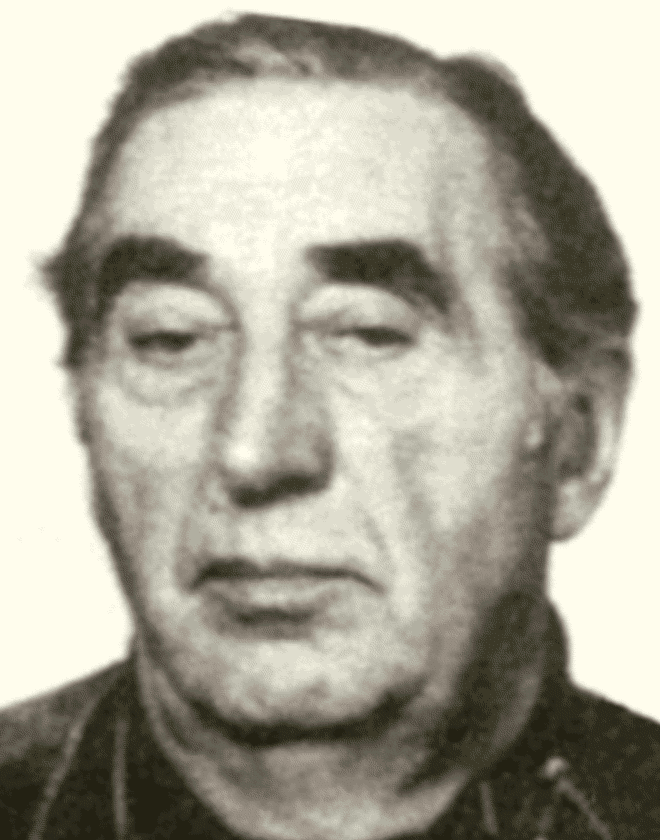
Lonardo
My name is Angelo Lonardo. I am 77 years old, and I am a member of La Cosa Nostra. I am the former underboss of the Cleveland organized crime family.
Initiation: I became a member of La Cosa Nostra in the late 1940s but have been associated with the organization since the late 1920s. My father, Joseph Lonardo, was the former boss of the Cleveland family.
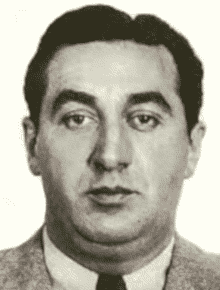
Lonardo
When I was "made" -- or became a member of La Cosa Nostra -- I went through an initiation ceremony. I was invited into a room at the Statler Hotel in Cleveland and asked if I knew what I was doing there. You naturally say, "No." Present were John Scalish, the acting boss; Tony Milano, the underboss; John Demarco, a capo; and Frank Brancato. They explained to me that I had been proposed to be made a member of La Cosa Nostra and defined the rules and regulations of the organization. They told me that you cannot fool around with narcotics; you cannot own a house of prostitution or have prostitutes working for you; you cannot fool around with a woman that's married to a member of La Cosa Nostra; and that whatever illegal activity you engage in, you have to report to the boss and receive permission to engage in that activity: After I was told the rules, I was asked if I still wanted to join the organization. One can still leave at that time, but the person usually accepts. In my case, I joined and became a member of La Cosa Nostra.
Once you accept the rules of membership, they lift a cloth off a table; underneath is a gun and a dagger. You are told that you now live and die with the dagger and the gun. You die that way, and you live that way. You are then given a card with a picture of a saint on it. This card is placed in the palms of your hands and lit. You shake the burning card back and forth until it is burned down to ashes. They then pinch your finger to draw blood, and then everyone gives you a kiss on the cheek and says, "You are now a member."
I later learned that to be proposed for membership in La Cosa Nostra you would have to have killed someone and stood up to the pressure of police scrutiny. Today, you don't have to kill to be a member, but just prove yourself worthy by keeping your mouth shut, or by being a "stand up" guy. However, if you are called upon to kill someone, you have to be prepared to do it.
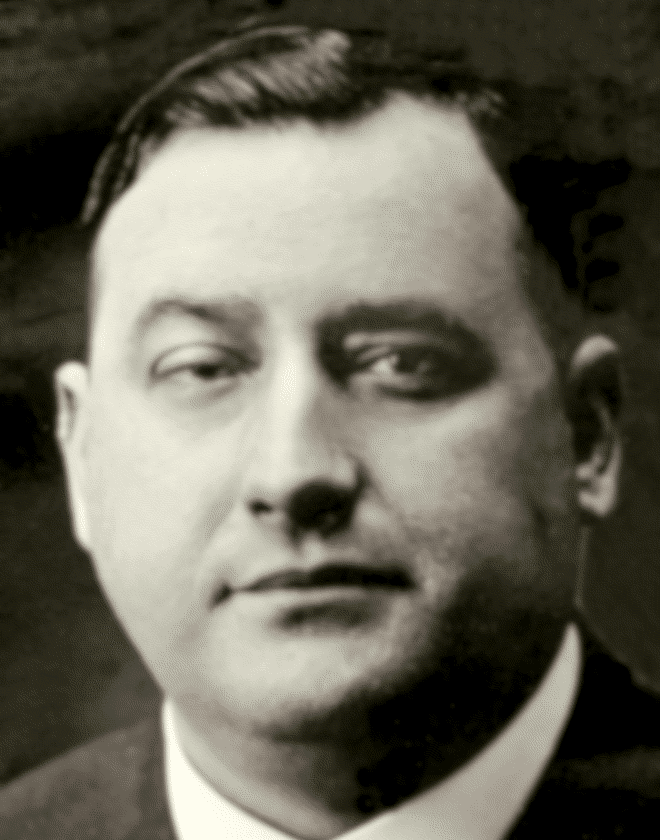
Joe Lonardo
Father's murder: In my case, my father was murdered by Salvatore Todaro in 1927. In revenge, my cousin, Dominic Sospirato, and I killed Todaro. This is one of the reasons that I was proposed for membership in La Cosa Nostra.
Dr. Romano's murder: In the 1930s, my cousin, John Demarco, and I murdered Dr. Romano, the former boss of Cleveland, because Romano had a role in the death of my father, and we believe that he killed our cousin on the operating table. At the time, I was not a member of the LCN, but Demarco was. As a result of the Romano murder, Demarco was condemned to death by the Commission for killing a boss without okaying it with the Commission. I was excused for my part in the murder, since I was not an LCN member and did not know the rules. Later, I attended a meeting with Al Polizzi, the boss of Cleveland, in Miami, Florida. It turned out that this was a Commission meeting and that Polizzi was defending Demarco's murder of Romano. I did not sit in on the meeting, but afterwards, Polizzi told me that he had "straightened out" Demarco's problem with the Commission.
1930s-1940s: During the 1930s, the Commission put a "freeze' on the making of any new members. The Commission put the freeze on, since families, especially in New York, were not making the "right" kind of people. Some individuals were even buying their way into the LCN. I have heard that one businessman paid $50,000 to join the LCN. Because of the decree, I was not made into the Cleveland family until the 1940s.
Scalish as boss: John Scalish became boss of the Cleveland family around 1949. He took over for Al Polizzi, who tired of Cleveland and retired in Florida. In 1949, the Cleveland family had between 50 and 60 members. Scalish did not "make" any new members, so the strength of the Cleveland family diminished as its members aged or died. Scalish just didn't want to make any new members. Scalish was the boss of the Cleveland family until his death in 1976. One of the main reasons for the Cleveland family's decline was the fact that neither Polizzi nor Scalish wanted to make new members.
Vegas gambling: Even though a small organization, the Cleveland family became involved in Las Vegas casinos through their association with the "Jewish Boys," Maurice Kleinmann, Moe Dalitz, Sammy Tucker, Tommy McGinney (phonetic), and Lou Rothkopf (phonetic). In the late 1940s, Wilbur Clark began building the Desert Inn casino in Las Vegas, Nevada. Clark was in need of additional capital and eventually went into a partnership with "The Jewish Boys" in order to obtain the necessary funding to complete the construction of the casino. Kleinmann, Dalitz, Tucker, McGinney, and Rothkopf were gamblers who owned the Beverly Hills Supper Club (a casino-type gambling operation) in Covington, Kentucky.
A few years after the Desert Inn was licensed and operating, "The Jewish Boys" gave Al Polizzi, John King, and Frank Milano a "piece" of the Desert Inn in exchange for the Cleveland family's protection. I do not know the percentage of the casino
given to the family. I do know that Cleveland received their "piece" on a monthly basis. Polizzi, King, and Milano would cut up their percentage among themselves and certain Cleveland family members. This arrangement continued until Howard Hughes purchased the Desert Inn.
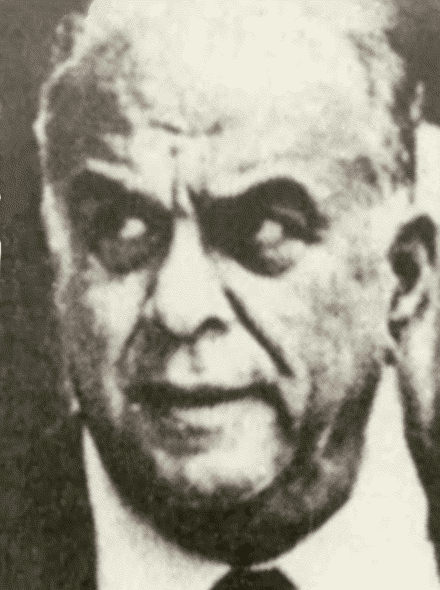
Licavoli
During "The Jewish Boys'" partnership with Clark, they obtained an interest in the Stardust casino. The Chicago family claimed a "piece" of this casino from the Jewish Boys. Sometime in the early 1960s, a "sit down' over this claim occurred, and the Cleveland family participated. Cleveland sided with Chicago, and Dalitz and Kleinmann were instructed to make payments to Chicago. The Cleveland family also received a percentage of the Stardust for their participation in the "sit down." John Scalish and Jack Licavoli represented Cleveland at this meeting. Scalish and Licavoli told me that Jackie Cerone and Tony Accardo (Joe Batters) attended the "sit down" for Chicago. Cerone also told me that the Cleveland family was foolish for not investing in the Stardust from the beginning and lost millions of dollars as a result of this.
George Gordon, a partner in the Jewish organization, would carry Cleveland's percentage from the Stardust casino to Cleveland. Gordon may also have brought the Desert Inn percentage with him. Gordon would give the percentage to Scalish who would split it with King, Al Polizzi, Frank Brancato, Dominic Sospirato, Maishe Rockman, Johnnie DeMarco, and myself. I was never told that the money I received came from the Stardust and Desert Inn, but I assumed it did. I continued to receive this cash until the casinos were sold. The reason the casinos were sold was that Kleinmann wanted to retire.
Teaming with Pittsburgh: During the 1970s, the Cleveland family received money from two sources. The first source was the "skim" money from the Las Vegas casinos, and the second was our piece of the Pittsburgh family's Youngstown, Ohio, rackets. Our family received about $40,000 dollars a month from the Vegas skim and 25 percent of the Youngstown rackets, which would average about $5,000 per month. I didn't learn about this arrangement until I became the underboss in 1976.
The skim of the Las Vegas casinos started in the early 1970s. Starting in 1974, I began receiving about $1,000 to $1,500 a month from the family, through Maishe Rockman. I did not know where the money was coming from, but I suspected that it was from the Las Vegas casinos. I learned this from various conversations that I had with Rockman.
In the 1970s, Cleveland gave Pittsburgh control of the Niles/Youngstown, Ohio, area vending and gambling businesses. As a result, Cleveland received 25 percent of the profits from these activities, with Pittsburgh and Youngstown receiving the remainder. Representing the Pittsburgh family in Youngstown were
Jimmy Prato, a member of the Pittsburgh family; and Joey Naples, a proposed member of the Pittsburgh family.
Problems with Carabbia: When James Traficant was running for sheriff of Mahoning County, Charlie Carabbia was given $60,000 to "buy off" Traficant. Carabbia talked to Traficant and told him that the money came from both the Cleveland and Pittsburgh families. Traficant refused the money and told Carabbia that he, Traficant, would not work with Pittsburgh (Naples and Prato) but would limit any deals to the Carabbias. When Carabbia told Naples and Prato this, they sent Carabbia back to Traficant, telling him "not to take no for an answer." Carabbia never took the money back to Naples and Prato, and it was their understanding that the "pay-off" to Traficant had been made.
I would meet with Naples and Prato on a monthly basis in Boston Heights, Ohio, to pick up the Cleveland family's percentage of the profits from the Youngstown gambling and vending businesses. This percentage was approximately $5,000 to $6,000 a month. During several of these meetings, Prato told me that he and Naples suspected Charlie Carabbia of not "paying off" Traficant and of keeping the $60,000 for himself. Also, Carabbia was suspected of lying to Naples and Prato about poker machines that he controlled. They felt that Carabbia was cheating them, as he was lying about the number of poker machines that he had around the city. Carabbia, while drunk in the local bars, would also make statements against the Pittsburgh and Cleveland families.
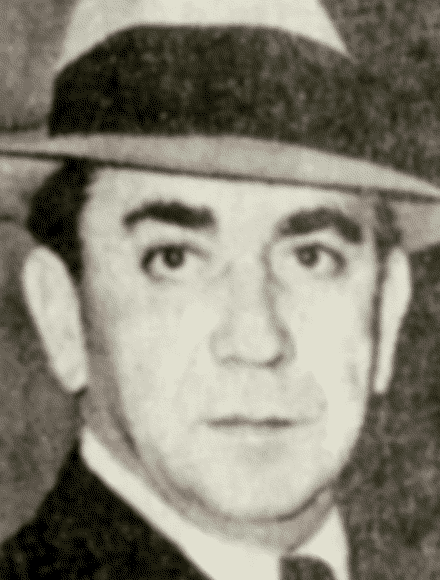
Mannarino
At a later monthly meeting at the Brown Derby in Boston Heights, Ohio, which Licavoli, Naples, Prato, and myself attended, Naples and Prato requested permission to kill Charlie Carabbia. Licavoli and I were not in favor of the murder, as Charlie Carabbia was supporting Ronnie Carabbia's family while Ronnie was in prison. Ronnie Carabbia was serving time for the murder of Danny Greene. We told them that we would talk to Charlie Carabbia and resolve the matter.
Later, I traveled to Pittsburgh with Pat Ferruccio and met with Kelly Mannarino at his place of business. Mannarino and I drove to his home in New Kensington, Pa. to discuss business. John LaRocca, boss of the Pittsburgh family, was also at this meeting. Mannarino and LaRocca told me that they wanted Charlie Carabbia murdered. Again, I told them that I would talk to Charlie Carabbia and clear the matter up. During this trip, I was given by Mannarino a package containing approximately $23,000. This money was Cleveland's percentage of the Youngstown rackets.
Sometime after the meeting, I talked to Charlie Carabbia, and I felt that the entire matter had been resolved. In a later meeting at the Holiday Inn, Boston Heights, Ohio, Licavoli and I explained to Prato and Naples that we had resolved the problems with Carabbia. Prato and Naples agreed to allow Carabbia to live, on the condition that Carabbia would not make any more problems for them. Naples and Prato sought our permission to kill
Charlie Carabbia if he did not live up to his side of the agreement and continued to steal from them and embarrass them in public. Licavoli and I told them that if he didn't stop, "You do whatever you want to do."
A few weeks later, I heard on the news that Charlie Carabbia was missing. A week or two later, at a meeting in the Boston Heights area, Prato and Naples told Licavoli and me that they had killed Carabbia after they learned that Carabbia was making plans to "hit" them. Prato and Naples also apologized for leaving Carabbia's car in the Cleveland area after he was killed, explaining that "whoever drove the car there didn't know where he was." We told Prato and Naples that under no circumstances could they hit Orlie Carabbia, as he was needed to take care of Ronnie Carabbia's family. We also told them to give $1,000/month from the profits of the Youngstown rackets to Ronnie Carabbia's wife. They agreed to our requests.
Licavoli becomes boss: In 1976, John Scalish died, and at a meeting at Scalish's house, Rockman told me and Jack Licavoli, who is also known as Jack White, that Scalish's wishes were that Licavoli become "boss" of our family. At first, Licavoli did not want the job, but I told him to take it, as those were Scalish's wishes. Later, Licavoli made Leo Moceri his underboss and Tony DelSanter his consigliere. One day, I asked Licavoli if he had gone to New York and introduced himself to Tony Salerno as boss of the family. Licavoli said no, and that he did not know that he had to do this. I told him that it was only right, out of respect, since the Genovese family represents us, Cleveland, on the Commission. After this conversation, Licavoli went to New York to introduce himself as boss of our family.

Moceri
Replacing Moceri: Later, in 1976, Leo Moceri was murdered. Moceri had been murdered on the orders of John Nardi. I became underboss after Moceri's death.
After Licavoli named me underboss, he and I traveled to New York to introduce me to Salerno as underboss of the Cleveland family. I had known Tony Salerno since the 1940s, and out of respect for him and the Genovese family, it was proper to let them know of my appointment.
When I became underboss, Rockman told me the details of the Las Vegas casino skim operation. Rockman told me that the skim started when Allen Glick approached Frank Balistrieri about Glick's obtaining a Teamsters pension fund loan so that Glick could purchase a Las Vegas casino. Balistrieri was the boss of the Milwaukee family. Balistrieri talked to Nick Civella, boss of the Kansas City family, since he controlled Roy D. Williams, who was a high official with the Teamsters. Civella told Balistrieri that he would find someone in Cleveland that could talk to Bill Presser. Civella got a hold of Rockman and asked him to talk to Bill Presser about getting a pension loan for Glick. Click told Balistrieri that in return for the pension loan he, Glick, would give the Milwaukee, Kansas City, and Cleveland families a piece of the casinos.
Teamsters pension fund: Rockman also told me that Glick received the Teamsters pension loan and purchased the Stardust, Fremont, and Desert Inn casinos. "Lefty" Rosenthal ran the skim operation in Las Vegas. Kansas City would get the money from Las Vegas and cut it up between themselves, Cleveland, and Milwaukee. Rockman would travel to Kansas City or Chicago to obtain Cleveland's share. (Rockman controlled the money and would cut it up with Scalish's and, later, Licavoli's approval.) Bill Presser and Roy L. Williams received about $1,500 a month for their role in the skim. The Cleveland family received a total of about $40,000 a month from the skim. Later, when a dispute arose in regard to the distribution of the skim, between Milwaukee and Kansas City, Chicago settled the dispute and began receiving 25 percent of the skim. Chicago settled the dispute since Milwaukee and Kansas City answer to Chicago, the same way Cleveland answers to New York.
Upon becoming underboss, my share of the skim increased. On occasion, it averaged as much as $10,000 per month. Jack White, Maishe Rockman, and I would split the skim after giving a portion of it to Joey Gallo, Tommy Sinito, and Russell Pappalardo. After December, 1977, all of our shares in the skim were given to Maishe Rockman to hold for lawyer's fees in regard to the Danny Greene murder cases. So, after December, 1977, my receipt of any monies from the skim was sporadic, at best.
On two occasions, in 1978, and in June, 1979, I traveled with Rockman and saw Rockman receive Cleveland's portion of the skim from Anthony Chiavola. On a third occasion, in approximately August, 1979, Licavoli and I accompanied Rockman to Chicago at which time he received Cleveland's cut of the skim.
To the best of my knowledge, the skim continued until at least 1984. In August, 1983, Rockman stopped by to see me in prison and told me that he was on his way Missouri, to pick up skim money. When I was at Lewisburg Penitentiary in 1984, Frank Balistrieri told me that the skim was still going on.
Genovese Crime Family: Since the 1920s, my family has reported to the Genovese family in New York City. We always had a very good relationship with the Genovese family, and that is why they represent us on the Commission. The Genovese family also represents the Maggadinno and Pittsburgh families.
Chicago controls west: There is a separate Commission in Chicago. Chicago has control of all of the Western families, including Detroit. The Chicago Commission makes and enforces the rules for those families and settles inter-family "beefs." If there was a beef or problem that included New York families with Chicago on Chicago-controlled families, that dispute would be settled by members of both Commissions having a sit-down and working out the dispute. Up to 1983, when I went to jail, I knew that Tony Accardo was head of
the Chicago family and, therefore, the head of the Chicago Commission.
Since the Genovese family represents the Cleveland family on the Commission, I have traveled to New York on several occasions to discuss family business. As I stated earlier, in 1976, Licavoli and I traveled to New York to pay respects to Tony Salerno as the underboss of the Cleveland family. In 1976, after the murder of Moceri, Licavoli and I went to New York to talk to Salerno to obtain his help in murdering Danny Greene and John Nardi. Nardi and Greene had taken a trip to New York to see Paul Castellano about a meat business. Salerno agreed to speak to Castellano and to have Nardi and Greene murdered on their next trip to New York. Nardi and Greene never made a second trip to New York, so New York never helped in their murders.

Tronolone
In 1977, Licavoli and I traveled to New York City to see Salerno and requested permission to "make" 10 new members into the Cleveland family. Salerno granted our request and told us if we needed any more members just to let him know.
Whenever we wanted to contact Salerno, we would go through "Peanuts" Tronolone (John). Tronolone was close to Salerno and the Genovese family and held the position of Consigliere in the Cleveland family while I was the underboss. Tronolone once jokingly told me that he considered himself a member of both the Genovese family as well as the Cleveland family.
John "Peanuts" Tronolone told me that he had spoken to Salerno who told him the Commission condemned Johnny Keys (Simone), and others to death for the unsanctioned murder of Angelo Bruno, the boss of the Philadelphia family. Keys had gone to Florida to see if Tronolone could straighten things out for Keys with Salerno. Tronolone had Keys pay for his, Tronolone's, trip to New York. Tronolone talked to Salerno, who told him to send Keys to New York and that he, Salerno, would have him killed. Tronolone returned to Florida and told Keys that he had straightened things out between Keys and Salerno and that Salerno wanted to see him. Several days later, Keys was found murdered in New York City. Thereafter, Tronolone bragged that he had taken care of that thing.
Genovese leadership: Salerno was acting boss of the Genovese family in the late 1970s as the boss, Funzi Tieri, was sick. Salerno once told Licavoli and me that when Funzi died, he would become boss of the Genovese family.
Influence over Teamsters: In 1981, Licavoli, Rockman, and I went to Chicago, Illinois, to see Jackie Cerone and Joey Aiuppa about getting them to agree to support Roy L. Williams as president of the International Brotherhood of Teamsters since Frank Fitzsimmons was dying. Cerone and Aiuppa agreed on Williams, and we then traveled to New York to see Salerno. We called John Tronolone in Florida, and had him set up a meeting in New York. We went to New York and saw Salerno who agreed with the choice of Williams and
told us that he would contact his people to line up support for Williams. We supported Williams over Jackie Presser, as Williams was Kansas City's man and had Chicago's backing. In return, Williams promised to name Jackie Presser the head of the Central States Pension Fund. After Williams was elected, he went back on his word and did not name Presser. Maishe Rockman told Presser not to worry about it and to not do any favors for Williams.
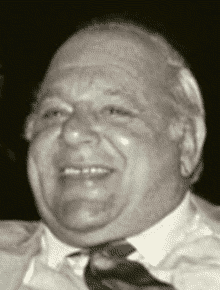
Presser
When it appeared that Williams, who had been indicted was likely to be forced to step down from his position, Rockman and I made a second trip to Chicago to get Chicago's support of Jackie Presser as president of the IBT because he was Maishe's protege, and it would increase the Cleveland family's prestige and respect.
Cerone and Aiuppa had other candidates for the position and told us that they did not want Presser because he was an informant. Maishe asked Cerone how he knew Presser was an informant, but all he would say is that he "Just knew." We left Chicago with the promise from Cerone and Aiuppa that they would think about Presser and let us know in a week or so. The next day, a Teamsters official named Dominic called Rockman and told him that Presser was "okay" with Cerone and Aiuppa. After obtaining Chicago's support, we went to New York to see Salerno. Salerno asked if Chicago agreed to Presser. We told him that they did, but that they had thought Presser was an informant. Rockman swore to Salerno that Presser was not an informant and Salerno agreed to the choice of Presser as IBT president.
Later, an article appeared in the Cleveland Plain Dealer which said that Presser was an informant. Presser demanded, but was refused, a retraction by the paper. Rockman and I traveled to New York City and met Salerno at his 116th Street Club. I explained to him about the Plain Dealer article and said that the article was not true. I told him Presser had asked Rockman to attempt to get a retraction, and asked if he could do anything about it. Salerno had "Fish" Cafaro call Roy Cohn. Cohn told Salerno that the owner of the Plain Dealer was his client and friend. Salerno made an appointment to see Cohn. We left New York, and a short while later the Plain Dealer printed a retraction.
FBI infiltration: During one of our visits with Salerno, Salerno told me that an F.B.I. agent had infiltrated one of the families and was close to getting made. At that time, Salerno did not know which family or soldier that the F.B.I. agent was close to and that they were trying to find out who he was.
Rockman was the Cleveland family's contact with the Teamsters union. The family would use the Teamsters to obtain pension loans and to do people favors. One time, Salerno had asked Rockman to see if he could obtain a union charter for a friend of Salerno's; and a second time, he had Rockman obtain information about a vending company in Cleveland that a friend of
Salerno's wanted to buy. As I stated earlier, we also used the Teamsters Central States Pension Fund to obtain a loan for Glick so that we could "skim" profits from their casinos.
My nephew, Brent Marco-Giuseppi, was working for a record distributor in Cleveland, Ohio. His company was attempting to get a record whose rights were held by a company in New Jersey, owned by a guy named Levy. Salerno was a friend of Levy's and arranged for Levy to sell the record to my nephew's company. Later, a dispute arose about money allegedly owed to Levy. After a trip to New York by Brent, Rockman, and others, Salerno found out Levy had been paid.
Mafia in U.S., Canada: As a member of La Cosa Nostra, I know that besides Cleveland, there are five LCN families in New York City and an LCN family in Los Angeles; San Francisco; Denver; Milwaukee; Chicago; Kansas City; Detroit; St. Louis; Buffalo; Philadelphia; Boston; Providence; Pittsburgh; New Orleans; New Jersey; Windsor, Ontario; Toronto; Ontario; and Montreal, Quebec.
As I stated previously, the Genovese family looks out for the Eastern families (aside from the other four in New York City), and Chicago takes care of the Western families. I knew that Anthony Scotto and Tony Anastasio used to run the waterfront for the Gambino family. In the early 1980s, I knew Salerno to be the boss of the Genovese family and also knew that Vincent Gigante (The Chin) was the consigliere and was being groomed to be the boss. I know that Salerno had a great deal of respect for Benny Lombardo and frequently sought his counsel on family matters.
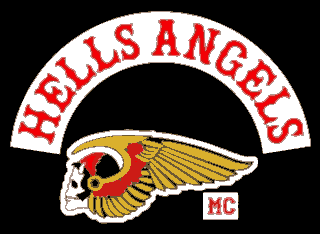
Hells Angels: There is no real association between the Cleveland La Cosa Nostra and the Cleveland chapter of The Hell's Angels Motorcycle Club. One time, Joe Iacobucci (Joe Loose) used the help of a Hell's Angels member in the murder of Joe Bonarigo. I found out about the use of a Hell's Angel in this murder after the murder was committed. Thomas Sinito came to Licavoli and me and told us that Bonarigo was going to "clip" us. We gave Sinito permission to contract for Bonarigo's murder, which was given to Joe Iacobucci. This murder occurred before Iacobucci was "made." But later we found out that Sinito was in the dope business with Zagaria, and we assumed that Sinito wanted Bonarigo out of the way for his dope business and not because of any threat to us.
Around 1981, a David Perrier was found shot to death. Perrier had been a collector of loanshark debts for Sinito. Perrier had a drug problem and would get drunk and get into fights at the local bars. Sinito had told me that he was worried about Perrier, as he thought Perrier had already talked to law enforcement about Sinito's illegal activities. One time, Perrier created a scene at a bar in Mayfield Heights, Ohio, when he made statements against Licavoli and slapped Licavoli's friend, Steve Calcavecchio (Darby). Later, Perrier met Licavoli and got on his knees and begged Licavoli's forgiveness.
Perrier continued his unstable behavior. I had been seeing Sinito on a daily basis, and after Perrier was killed, I did not see Sinito for several days. Later, Sinito told me that he had killed Perrier, as he was afraid Perrier had talked to law enforcement about him. I was upset with Sinito, as he had not obtained my permission to kill Perrier. Sinito explained that an opportunity to kill Perrier arose and that he did not want to pass it up. Sinito told me that Ronnie Anselmo helped him in the murder of Perrier. Sinito told me that he had difficulty in killing Perrier. He and Anselmo picked Perrier up and drove to an area near Warren, Ohio. They shot Perrier four to five times in the head, and he still struggled with them. Perrier told Sinito, "You son of a [expletive]. I thought we were brothers ..." Perrier lived for a short while, then died. They then dumped the body from the car. Sinito had to dispose of the car, as it was soaked with blood. I believe that he burned the car.

Liberatore
FBI informants list: Tony Liberatore, who was made a member of the Cleveland family after the murder of Danny Greene, once obtained an F.B.I. informant list from the Cleveland F.B.I. Office. He gave the list to Jack White, who showed it to Maishe and me. Liberatore had told Jack that he had gotten it from a woman in the F.B.I. whom he had promised to pay. Jack told me he gave Liberatore the money to pay for the informant list.
I remember that the list contained the names of Danny Greene, and others who were informants for the F.B.I. I was shocked to see some of the names on the list, as I had known some for years. Licavoli and I believe Liberatore placed names on the list of people he had been feuding with and did not like. At that time, we burned the lists in Rockman's incinerator and instructed Liberatore not to obtain any further information from his source in the F.B.I. I learned while I was in jail for the Danny Greene murder that Liberatore was still receiving information from his F.B.I. source. Liberatore was attempting to provide information to other La Cosa Nostra members in other cities in an attempt to build himself up and to look for support in taking over Cleveland. This never occurred, as the other "made" guys did not think him trustworthy as he attempted to take over the family when Licavoli and I were having legal problems.
Narcotics: Mr. Chairman, I have been in the Mafia most of my adult life. I have been aware of it ever since I was a child in Cleveland. It has changed since I first joined in the 1940s, and, especially, in the last few years with the growth of narcotics. Greed is causing younger members to go into narcotics without the knowledge of the families. These younger members lack the discipline and respect that made "This Thing" as strong as it once was.
At the same time, the Government has successfully convicted many members, including most of the Cleveland family. However, this does not mean the La Cosa Nostra is finished in Cleveland or elsewhere. Many of the made "members," such as Anthony Liberatore, Tommy Sinito, and others, will be released in the next few years. In addition, there are many young men who are still in Cleveland who would have been "made" if we had had the time to do so before we were incarcerated.
Accardo, Tony, 3, 6-7
Aiuppa, Joey, 7, 8
Anastasio, Tony, 9
Angersola, John, 2-3
Anselmo, Ronnie, 10
Balistrieri, Frank, 5, 6
Milwaukee Mafia boss, 5
Batters, Joe, See Accardo, Tony.
Beverly Hills Supper Club, 2
Bonarigo, Joe,
murder of, 9
Boston, MA, 9
Boston Heights, OK, 4
Brancato, Frank, 1, 3
Bruno, Angelo,
murder of, 7
Philadelphia Mafia boss, 7
Buffalo, NY, 9
Buffalo NY organized crime, 6
Cafaro, Vincent "Fish," 8
Calcavecchio, Steve "Darby," 9
Carabbia, Charlie, 4-5
murder of, 5
Carabbia, Orlie, 5
Carabbia, Ronnie, 4
casino gambling, 2-3
Cerone, Jackie, 3, 7, 8
Chiavola, Anthony, 6
Chicago, IL, 3, 9
Chicago organized crime, 3
regional Commission for western Mafia, 6, 9
share of Las Vegas skim, 5-6
Civella, Nick,
Kansas City Mafia boss, 5
Clark, Wilbur, 2-3
Cleveland organized crime,
increase in membership, 7
induction ceremony, 1
limit on membership growth, 2
meetings with Chicago organization, 3, 7
represented on Commission by Genovese organization, 5, 6
share of Las Vegas skim, 5-6
Cleveland Plain Dealer, 8
Cohn, Roy, 8
Commission, See Mafia / Commission.
Covington, KY, 2
Dalitz, Moe, 2, 3
DelSanter, Tommy,
Cleveland Mafia consigliere, 5
DeMarco, John,
Cleveland capodecina, 1
death sentence against, 2
share of Las Vegas skim, 3
Denver, CO, 9
Desert Inn casino, 2-3, 6
Detroit, MI, 6, 9
FBI,
infiltration of Genovese Crime Family, 8
informant list obtained by organized crime, 10
Ferruccio, Pat, 4
Fitzsimmons, Frank, 7
Fremont casino, 6
Gallo, Joey, 6
Gambino Crime Family, 9
gambling, 4
Genovese Crime Family, 5, 9
Gigante, Vincent "the Chin," 9
Glick, Allen, 5
Gordon, George, 3
Greene, Danny,
murder of, 4, 6, 10
Hells Angels motorcycle club, 9
Hughes, Howard, 3
Iacobucci, Joe "Loose,"
and Hells Angels, 9
and Joe Bonarigo, 9
Kansas City, MO, 5, 9
Kansas City organized crime,
represented on Commission by Chicago, 6
share of Las Vegas skim, 5-6
Keys, Johnny, See Simone, John.
King, John, See Angersola, John.
Kleinman, Maurice, 2, 3
LaRocca, John, 4
Las Vegas, NV, 2-3, 5-6
Liberatore, Tony, 10
Licavoli, Jack,
and Anthony Salerno, 5, 7
and Joe Bonarigo, 9
and Tony Liberatore, 10
Las Vegas skim, 6
meetings with Chicago organization, 3, 7
meetings with Pittsburgh organization, 4-5
succeeds Scalish as boss, 5
loansharking, 9
Lombardo, Benny,
and Anthony Salerno, 9
Lonardo, Angelo,
and Anthony Salerno, 5, 7
and Charlie Carabbia, 4
and Dominic Sospirato, 2
and Jack Licavoli, 5, 7
and John DeMarco, 2
and Pat Ferrucci, 4
at Lewisburg Penitentiary, 6
Cleveland crime family association, 1
Cleveland crime family induction, 1
Cleveland Mafia underboss, 5
Lonardo, Joseph,
Cleveland Mafia boss, 1
murder of, 2
Los Angeles, CA, 9
Mafia
Commission, 2, 5
discipline, 10
greed, 10
induction, 1
membership freeze, 2
narcotics, 10
requirements, 1
rules, 1
Magaddino Crime Family, See Buffalo NY organized crime.
Mannarino, Gabriel "Kelly," 4
Mayfield Heights, OH, 9
McGinney, Tommy, 2
Milano, Frank, 2-3
Milano, Tony, 1
Milwaukee, WI, 5, 9
Milwaukee organized crime, 5
represented on Commission by Chicago, 6
Moceri, Leo,
Cleveland Mafia underboss, 5
murder of, 5
Montreal, Quebec, Canada, 9
Naples, Joey, 4-5
narcotics, 1, 9, 10
Nardi, John, 5
New Kensington, PA, 4
New Jersey, 9
New Orleans, LA, 9
New York City, NY, 2, 9
Pappalardo, Russell, 6
Perrier, David, 9-10
murder of, 9
Philadelphia, PA, 9
Pittsburgh, PA, 9
Pittsburgh organized crime, 3-4,
represented on Commission by Genovese organization, 6
Polizzi, Al
Cleveland Mafia boss, 2
retirement, 2
share of Las Vegas casino skim, 2-3
Prato, Jimmy, 4-5
Presser, Bill, 5, 6
Presser, Jackie, 7-8
and Maishe Rockman, 8
government informant, 8
prostitution, 1
protection, 2
Providence, RI, 9
Rockman, Milton "Maishe," 3, 5, 6, 7, 8, 10
and Jackie Presser, 8
Romano, Dr. Giuseppe,
Cleveland Mafia boss, 2
murder of, 2
Rosenthal, Frank "Lefty," 6
Rothkopf, Louis, 2
Salerno, Anthony "Fat Tony," 5, 8-9
Genovese Crime Family acting boss, 7
San Francisco, CA, 9
Scalish, John,
Cleveland Mafia acting boss, 1
Cleveland Mafia boss, 2
death of, 5
Las Vegas skim, 6
meeting with Chicago organization, 3
Scotto, Anthony, 9
Simone, John,
and Angelo Bruno, 7
and John Tronolone, 7
murder of, 7
Sinito, Thomas, 6, 9, 10
skim of casino income, 2-3, 5-6
Sospirato, Dominic, 2, 3
St. Louis, MO, 9
Stardust casino, 3, 6
Statler Hotel, 1
Teamsters Union
Central States Pension Fund, 8
corrupt leaders, 5-6, 7
pension fund loan, 5-6
Tieri, Frank "Funzi", 7
Todaro, Salvatore, 2
Toronto, Ontario, Canada, 9
Traficant, James, 4
Tronolone, John "Peanuts," 7
and Anthony Salerno, 7
and John Simone, 7
Tucker, Sammy, 2
vending machines, 4, 8
Warren, OH, 10
White, Jack, See Licavoli, Jack.
Williams, Roy D., 5, 6, 7-8
Windsor, Ontario, Canada, 9
Youngstown, OH, 3